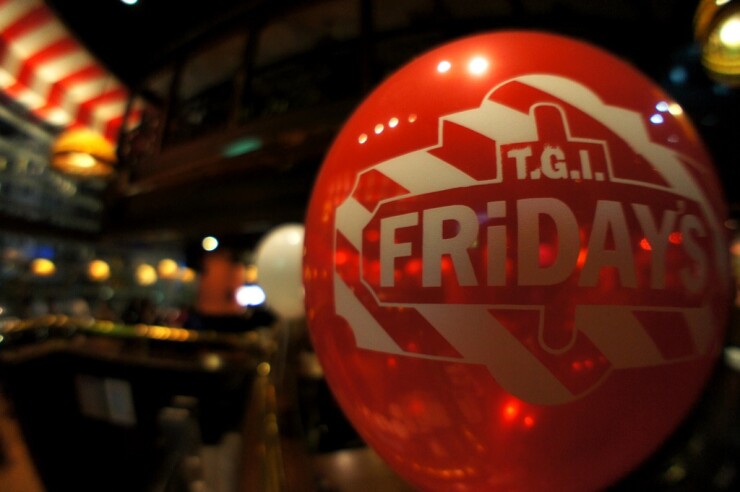The spiraling fortunes for TGI Friday’s whole-business securitization continued to plunge this week.
Kroll Bond Rating Agency on Tuesday issued its third downgrade in the past year to more than $400 million in asset-backed notes issued by the chain’s master trust.
The ratings agency cited declining sales and revenues that predate the coronavirus outbreak this spring – although COVID-19 has “exacerbated” TGI Friday’s woes amid a pandemic that has cratered the dine-in casual restaurant sector, Kroll stated in a release.
The downgrades affect the approximate $350 million outstanding balance of the Class A-2 term-note tranche, as well as the $50 million Class A-1 variable funding note. Both were downgraded to B from the prior BB rating that Kroll had assigned in April in the first downgrade action this year.
The notes had originally been issued with a BBB rating, and sized at $425 million. The notes were reduced to BBB- in August 2019 because of the chain’s declining prospects,
The move follows a
According to Kroll, the Dallas-based chain saw its trailing 12-month system wide sales fall to $1.4 billion in June, compared to nearly $2.5 billion recorded at the time TGI Friday’s sponsored its first franchise-fee securitization in March 2017.
The June sales figure triggered a required rapid amortization feature in the deal, forcing Kroll to apply additional principal to investors’ note proceeds.
The debt-service coverage ratio has also fallen to approximately 1.6x, compared to 2.2x in March 2017 as the chain underwent a “multi-period” reduction in store count and same-store sales.

Under terms of its securitization, TGIF Funding must divert 50% of available cash flow to a cash-trap reserve account if debt-service falls below 1.75x; that cash-trapping increases to all available cash flow if the DSCR breaches 1.5x.
If below 1.2x, available cash flow has to be used to pay down the notes.
The downgrade comes after a nearly five-month review of the chain’s performance, and its vulnerability to the pandemic-related lockdowns on dine-in restaurants instituted across the country this spring. Kroll also is concerned about a longer-term “shift in consumer preferences and competition from lower-cost alternatives” that continue to challenge the chain, Kroll’s report stated.
“As states reopen and virus transmission rates decline, [Kroll] expects the Company to continue to recover toward pre-pandemic demand and revenue levels. However, the Company will continue to face challenges given the uncertainty of the impact of COVID-19 in addition to the ability to effectively operate during a Rapid Amortization Event.”
Both Kroll and S&P may consider further downgrades due to health and safety concerns related to COVID-19.
The 2017 transaction was
The company pledged to repay 2% of the principal of the senior notes annually.
TGI Friday’s sold the Class A-2 notes at 6.202% interest, using proceeds to pay an equity shareholder dividend as well as repay debt from its 2014 acquisition by private equity firm Sentinel Capital Partners.





